One human rights defender, and three years of Taliban rule in Afghanistan
It’s three years since the Taliban retook control in Afghanistan – three years which have brought ever more repression of women. Over those last three years I have talked regularly to human rights defender Fereshta Abbasi. A native of Afghanistan, she now lives in exile in London, and works, researching the situation in her home country, for Human Rights Watch.
On this week’s summer profile we devote our Inside Geneva podcast to Abbasi, and the hopes, fears, and determination of Afghan women everywhere. Looking back to those chaotic days in 2021, when NATO countries scrambled to the airport to flee, Abbasi admits that she “could see it coming. I think for women of Afghanistan, we knew that the Taliban taking over in Afghanistan means that it will be a dark future for women.”
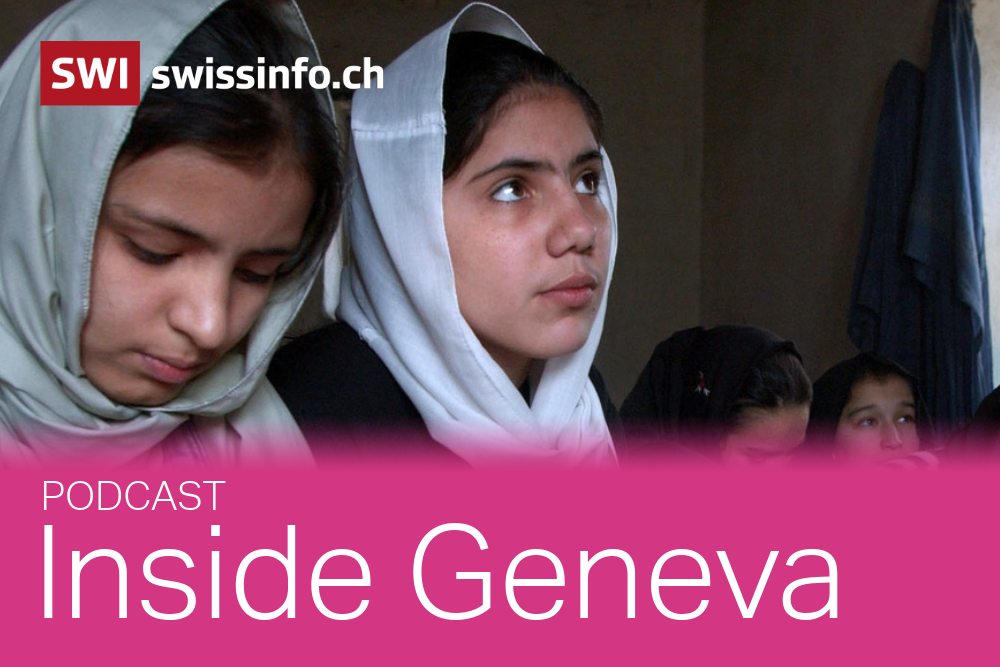
More
Summer profiles: Afghan women’s struggle against Taliban oppression
Like many Afghans, Abbasi knew well what women had to endure the last time the Taliban had been in power, in the 1990s. Optimistic discussions in the west about a “Taliban 2.0” which would be different from the first version didn’t really convince her. “I knew what to expect,” she tells Inside Geneva.
Nevertheless, the speed and ease with which the Taliban reinstalled its repressive rule has caused shock and dismay. Not least, as Abbasi points out, because no outside pressure, from the UN, from human rights groups, or from world leaders, has managed to change things.
“No matter what we have done in the past three years,” she told me, “we haven’t been able to reverse one single decree of the Taliban restricting women’s rights.”
Keep up the pressure
So what can be done? Abbasi, despite her disappointment, is not giving up. If she ever needs inspiration, she looks to the brave women still inside Afghanistan, who continue, often at great risk to themselves, to demand their rights.
But still, the direction of travel is clearly in the wrong direction. Aid agencies have been told they can no longer employ women, although some, with quiet determination, have found ways to continue doing so.
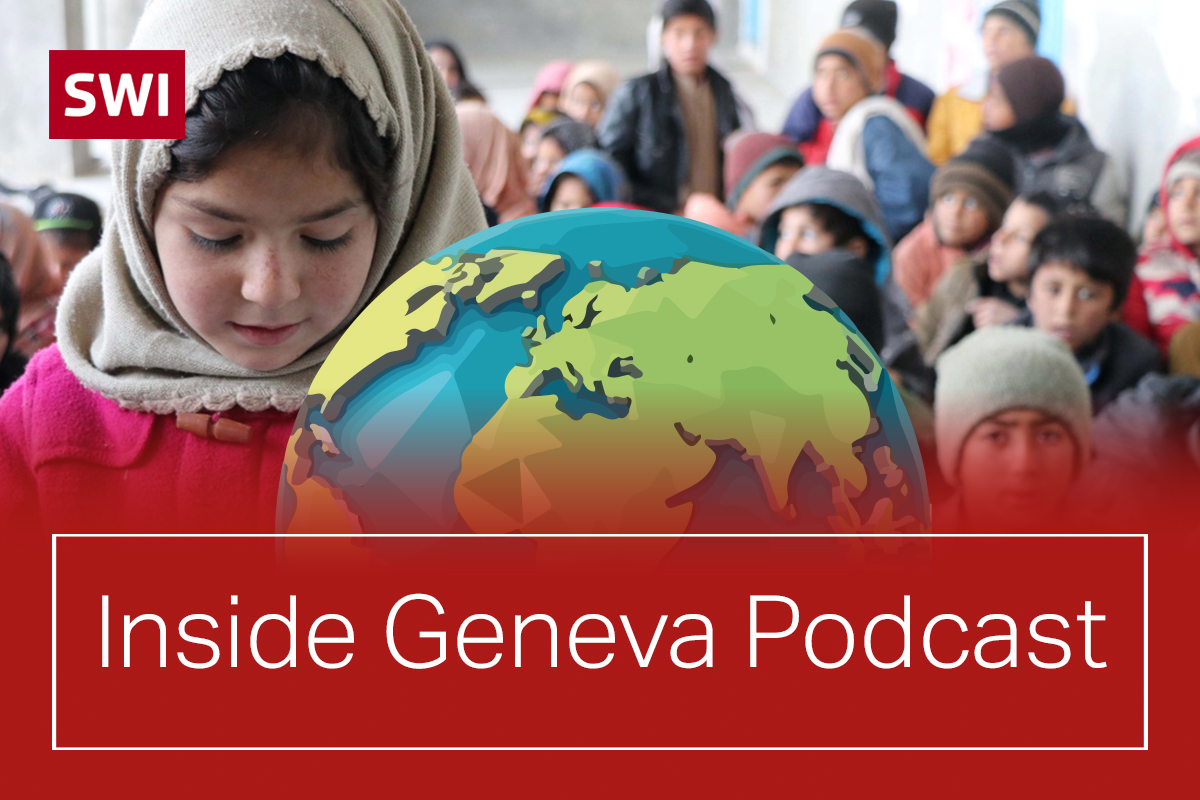
More
Inside Geneva: what now for women in Afghanistan?
Education for girls is now limited to primary school – after the age of 12 they are not allowed to attend school. For Abbasi, who has fond memories of going to university in Herat, a city in the Western part of the country, this is perhaps one of the biggest blows, and one she believes the rest of the world must not ignore.
“If you believe in the fact that women have equal rights as men, you cannot just close your eyes to what is happening in Afghanistan.”
Unfortunately, while eyes may not be actually closed, they are refocused nowadays, on Ukraine and on Gaza. The world’s attention has slipped away from Afghanistan, and with it the pressure.
Gender apartheid
A recent UN human rights report on Afghanistan did however use the term “gender apartheid” to describe the subjugation of women, and it is a term Abbasi believes is useful, despite the fact some western diplomats are uneasy at its association with South Africa and the strict sanctions imposed on its apartheid regime.
+ Switzerland continues to offer protection to Afghan girls
Amnesty International, an NGO, meanwhile has called for gender apartheid to be recognised as a crime under international law, saying “this form of institutionalised oppression must be named. A mandate for its investigation and prosecution must be affirmed, and due penalty for its commission set.”
Here again Abbasi thinks the application of international laws and fundamental standards could help to make the Taliban accountable. After all, she points out, Afghanistan does accept the jurisdiction of both the International Criminal Court, and the International Court of Justice, so there are legal mechanisms which could be used to challenge the Taliban’s systematic oppression of women.
But despite the many difficulties facing the UN’s humanitarian agencies in Afghanistan, not least the restrictions on working with and for women, Abbasi thinks they need to stay. As she tells Inside Geneva, millions of Afghans suffer food insecurity, poverty, and unemployment, and the ones who suffer most are women and children.
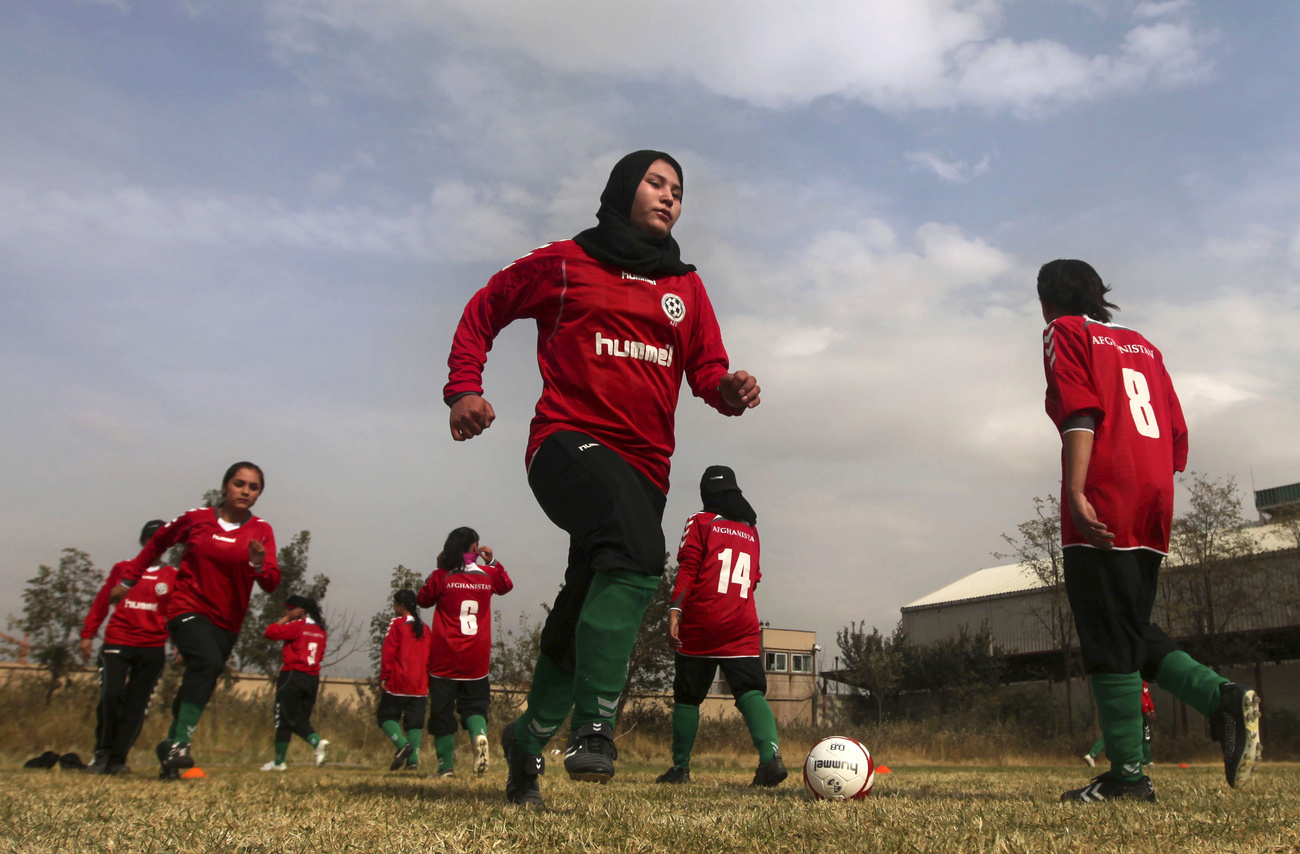
More
Afghan women footballers in exile fight to keep their sports dreams alive
The UN “must find ways to continue working” which are inclusive, Abbasi insists. She, and many other Afghan women, were bitterly disappointed to see that last June’s UN sponsored “Doha 3” conference on Afghanistan included special envoys to the country, diplomats, aid agencies and other institutions, and the Taliban – but no women, and no civil society groups advocating for women.
“There need to be some red lines,” she says. “Human rights and women’s rights need to be in the core agenda of every single meeting that these diplomats or the UN agencies are having with the Taliban.”
And the future?
So what does the future hold? Like so much in our very uncertain world, it’s impossible to say. But Abbasi will not give up, not while “Afghanistan remains the only country in the world where women do not have access to education beyond sixth grade. Women do not have the right to most employment. Women do not the right to freedom of movement. Women do not have the right to protest and assemble.”
Given the current situation, it is hard to stay hopeful. But, as you will hear in our in-depth interview on Inside Geneva, Abbasi is determined to remain so – she owes it, she believes, not just to herself, but to her friends and family still living in Afghanistan.
“It’s very difficult to think of a better Afghanistan, a brighter future for women under the Taliban rule. And I don’t want to think about that. I want to believe, and hold my strength together that this madness cannot last.”
vm
Subscribe below to the Inside Geneva newsletter to make sure you never miss a new episode.

In compliance with the JTI standards
More: SWI swissinfo.ch certified by the Journalism Trust Initiative










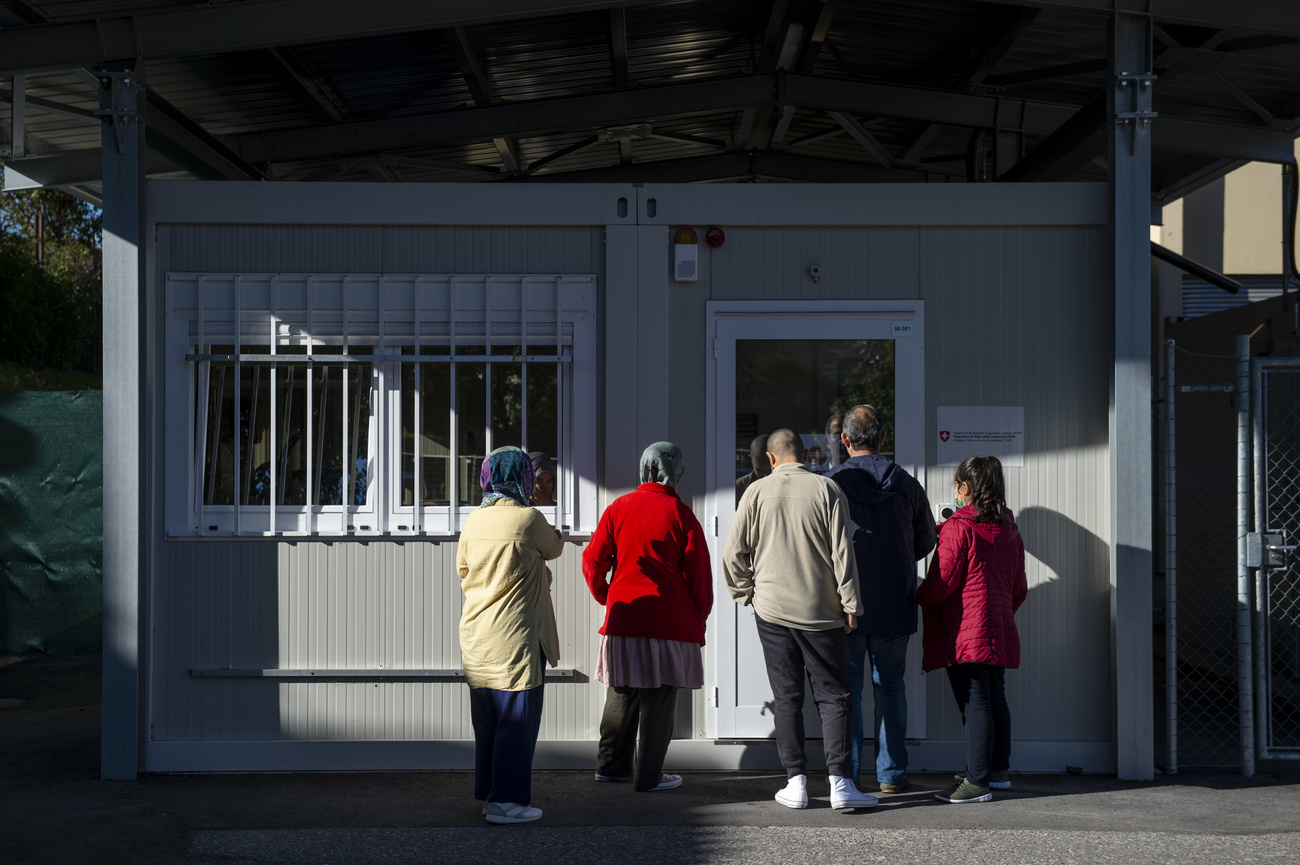
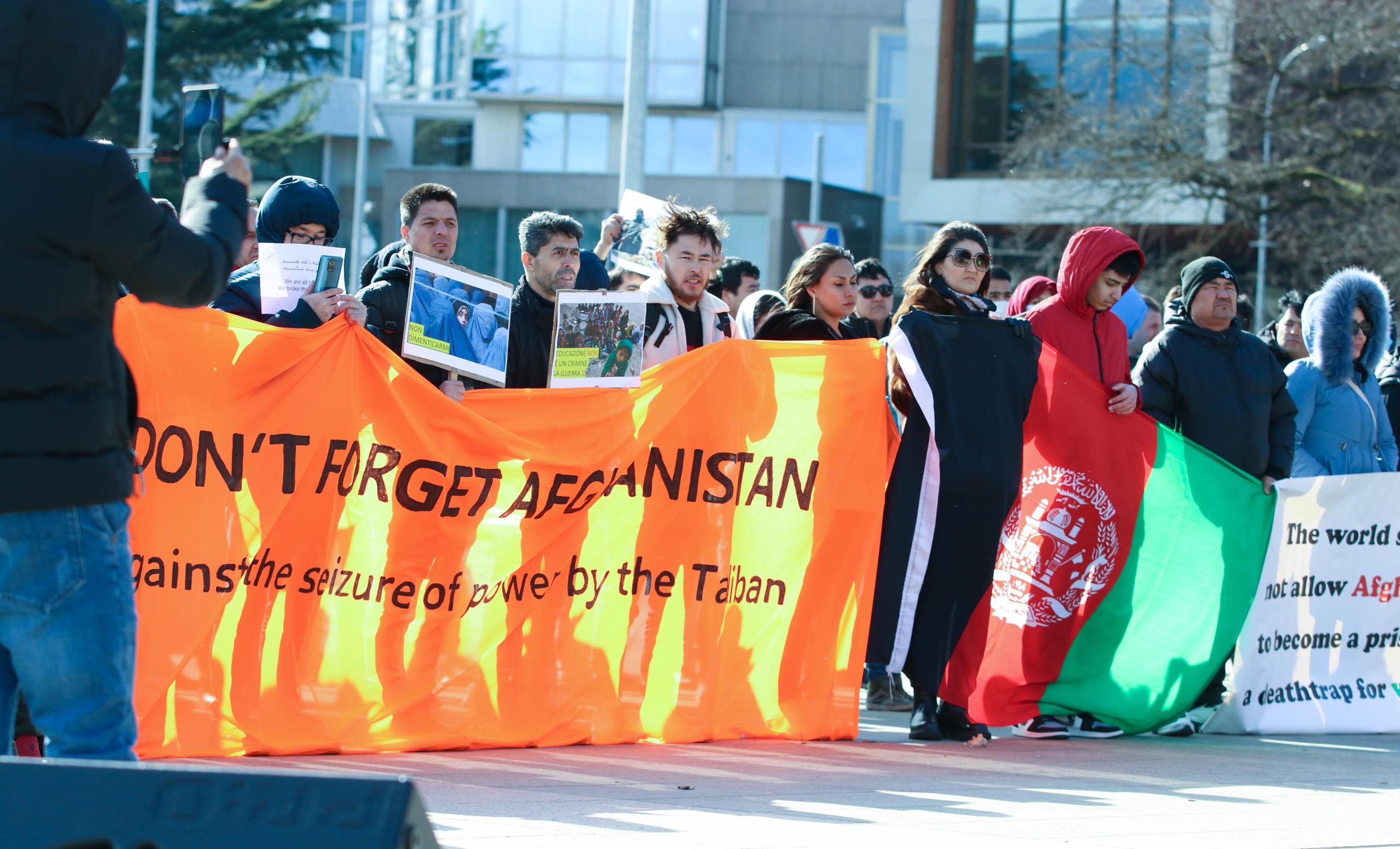
You can find an overview of ongoing debates with our journalists here . Please join us!
If you want to start a conversation about a topic raised in this article or want to report factual errors, email us at english@swissinfo.ch.